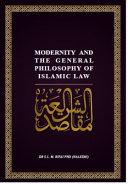Social changes demand the legal changes in Islamic law: Some theoretical and pragmatic arguments by DR SLM RIFAIHow does Islamic law respond to social changes? This has been one of the challenging questions in Islamic legal history. Muslim legal theorists have been debating this since the formative period of the Islamic legal thought. The sources of Islamic law are limited in certain scriptural texts, historical legal precedents and supplementary legal sources. Yet, human challenges and problems are unlimited. So, how do limited numbers of divine texts and prophetic traditions provide viable solutions for ever-increasing problems of the Muslim community in this modern digital world? This book explores the intriguing relationship between social and legal changes in Islamic law. Modern technological and digital revolutions have brought about unprecedented social changes in all walks of human life. Classical Muslim jurists devised the doctrines of the general philosophy of Islamic law to relate Islamic law to changing social realities of their historical contexts. Classical legal theorists created many legal principles, theories and concepts to demonstrate the flexible and adaptable nature of Islamic law to different social conditions. Yet, classical Islamic legal thoughts are not always viable and applicable to modern social conditions. For this reason, many modern Muslim scholars argue that the legal reform is very much important today to meet the challenges of modern time. Muslim scholars seek solutions for the problems of the Muslim community in the historical precedents of past the Muslim intellectual heritage without appreciating all these modern changes. Many of them are experts on Islamic studies and yet, they find it difficult to relate what they learn to the modern social condition of this complicated world. The science of the general philosophy of Islamic law provides some dynamic mechanisms to relate Islamic teaching to modern social conditions without distorting or twisting the pure teaching of the divine message. It bridges the gap between the historical legacies of the Islamic past and the scientific development of the modern world. It relates the past legacy of Islamic heritage with the present-day realities of the modern world. It directs Muslim jurists to understand modern social conditions in a holistic approach considering both the literal and contextual meaning of the text. Therefore, many others argue that the science of the legal philosophy of Islamic law can be developed as a dynamic research methodology and developmental policy strategy. This book explores the classical and modern ideas of the general philosophy of Islamic law to understand the dynamic nature of Islamic law to adapt to the modern social conditions. This thesis emphasises the importance of understanding texts, context and social realities. When we apply the divine texts into modern context, we should take the time and space factors into account. Moreover, the social realities of modern societies otherwise, the application of divine texts will not be always viable in this modern world. The literal school of Islamic legal thought does not take these factors into consideration when they try to apply the divine texts to modern conditions. The challenges of modernity are immense in all field of human sciences. We see a lot of changes in politics, geopolitics, finance, business sections and many other fields of education and human sciences. It is expected that the digital technology and artificial intelligence will bring dramatic changes into human life by 2040. The Muslim world must make some legal changes to meet the challenges of the social changes. The basic argument of this paper is that some aspects of classical legal thoughts are viable today in our modern context and legal changes are unavoidable. This study explores different areas of modern development in human sciences to highlight the importance of legal changes.
This book explores the intriguing relationship between social and legal changes in Islamic law. Modern technological and digital revolutions have brought about unprecedented social changes in all walks of human life.










